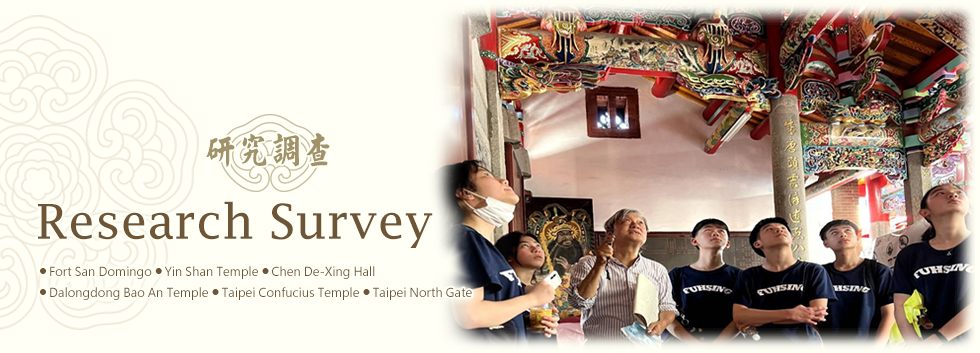Compiled by Edward Lu
Expert Interviews
|
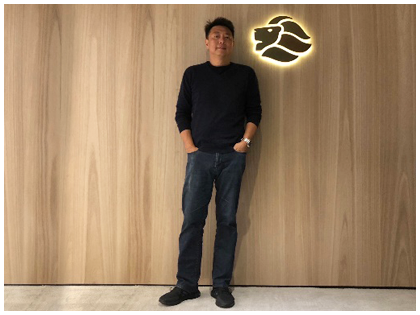
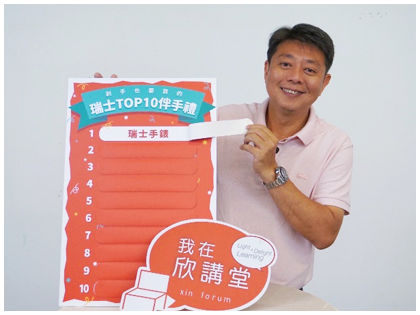
| Q01. | May I ask Mr. Lin how you met Professor Li? (Edward Lu)
|
My grandfather, Lin Heng-Dao, is known as the "Fairy of Historic Sites" and is a well-known authority on historical sites in Taiwan. Professor Li was one of my grandfather's students decades ago. When I was in middle school, I didn't like to study very much. I wanted to play video games and watch TV at home every day. One day, my grandfather put a set of books he wrote called "Explore the Origin of Kun Island" on my desk. This set of books has won the National Literature and Art Award, which is the highest honor in Taiwanese historical literature and reportage. After I read it, I found that they were all describing the origin of the buildings and streets near my home. The more I read, the more interesting I found it. I finished reading the four books without realizing it. These four books made me feel that there is still a lot of extended knowledge to explore, which inspired my interest in traditional architecture. After that, I wanted to read books and liked to study.
| Q02. | What inspiration did Professor gives you? (Sunny Yu)
|
Professor Li often shared his books with me. Although the types of books are all-encompassing, the books given by the professor gave me a better understanding of traditional art aesthetics and cultural relics. Due to Covid-19 pandemic, people could only stay home. Professor Li would call me to his studio every three days, listen to Professor Li’s storytelling, and help sort out the professor’s research records. When I encountered blind spots, Professor Li would take me to study. He is knowledgeable and humble and polite, so what Professor Li inspires me is not only academic knowledge but also how to treat others.
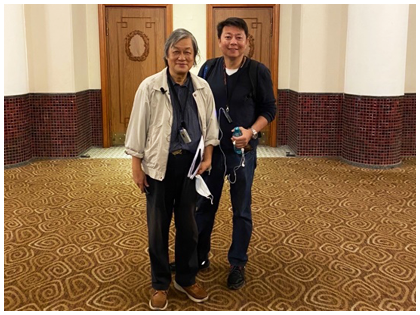
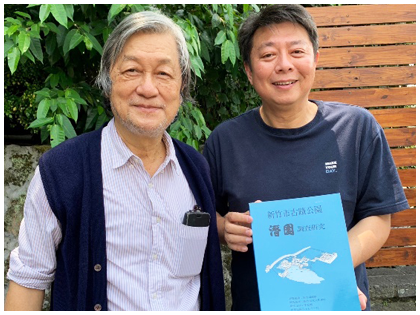
| Q03. | From your touring experiences for many years, what’s your suggestion on historic site preservation for the young generation? (Aaron Chen)
|
First, look at the phone less and read more books. Now I am teaching the European Sightseeing and History Guide of Taiwan at Tatung University and Shih Hsin University. I also continue my study for master's and doctoral degrees. I find that when university students hear about historic sites, they will fall asleep and be unwilling to follow the teachers to visit the historic sites. They think that visiting historic sites equals eating street food and taking photos. The education on historic sites is a complete failure, only for getting course credits. It is because the senior generation didn’t know the historic sites and was less focused on them. If the young generation doesn’t know their hometown and historic sites, when going abroad, they cannot show soft power. As a result, I would like to give the young generation some advice to put down cell phones for two hours per week and read books written by Professor Li or my grandfather, Mr. Lin Heng-Dao, or visit historic sites if interested, to experiencing the connection between historic sites and hometown, and the relationship with ethnic groups; thus, to establish the national consciousness. Most participants in touring are retired people, but the young generation particularly needs to visit historic sites to experience the small but refined beauty of historic sites in Taiwan.
| Q04. | From your past experience, how should schools promote the concept of understanding and preserving monuments and buildings? (Maxine Huang)
|
In order to promote the concept of heritage and preservation among students, the first step is to promote the importance of historic sites among teachers. There are very few teachers and parents are willing to take the time to introduce their children to historic sites. In addition to the great amount of time it consumes, teachers have a great responsibility to take their students out on-site visits. Therefore, in order to promote the concept of historic sites preservation to the younger generation, the most important is that teachers and parents have to be willing to introduce them to the preservation of historic sites.
| Q05. | Regarding the preservation of cultural assets, what advice do you have to government units? (Daniel Ho)
|
As far as I know, our government has issued the Law on the Preservation of Cultural Assets since May 28, 1980, and has been around for 40 years. This is a significant improvement in the preservation of each culture, from many departments managing a small part of them separately to being fully managed by the cultural department. However, owners who have property that will later change into a historic site are going to face the problem of assets being “frozen.” For example, we will regret that the historic site will suddenly catch fire. In fact, the problem is economical. If the government can provide enough incentives to make the people willing to turn their cultural assets into historical sites for the masses, I think that the aforementioned catastrophes will be much decreased and that our cultural treasures will be more diversified and richer.
| Q06. | I would like to ask Mr. Lin, you are also a very famous European in-depth onsite visit expert, can you share your feelings about the difference between your visiting experience in Europe and Taiwan? (Christina Lee)
|
In Europe, you can see the architectural styles of various countries, which is a visual and spiritual stimulation, and you will never get tired of seeing it. For example, when I arrived in Vienna, I saw nearly five hundred years of artworks collected in the palace of the Habsburg dynasty. Standing in Prague Square, I can see the evolution of the building over the past thousand years. It is a living building museum. Although coming to Europe may be stunned by the beauty of its architecture, but not many opportunities for in-depth understanding, it is better to read more books on Gothic architecture and Baroque art. If you compare it with Taiwan's architecture in many ways, you will learn a lot. Although there is a time and space limit from north to south in Taiwan, the four hundred years of history will be shorter than in Europe. But we can see our cultural assets anytime and nearby, and see the architectural components of each temple in more detail. This is a very precious opportunity for us living in Taiwan.
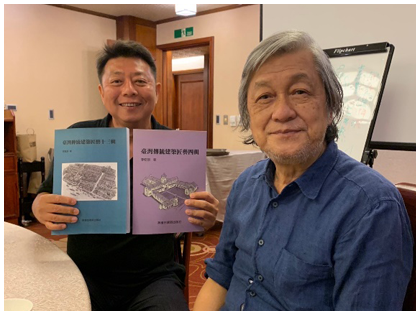
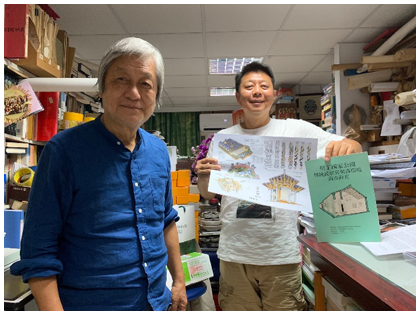
Conclusion
Traveling to cities with a long history in Europe, Mr. Lin has rich experience and broad knowledge. It is our honor to interview Mr. Lin. In the interview, he talked eloquently and in a simple and humorous way, telling us about his career enlightenment, onsite visiting experience, and many personal views. Through this interview, we also got to know Professor Li from Mr. Lin’s viewpoints.
As the saying goes, "A great teacher makes a great student. This statement is perfectly reflected in the teacher-student friendship between professor Li and Mr. Lin. During the interview with Mr. Lin, we saw Mr. Lin’s respect and gratitude to Professor Li and how Professor Li indirectly bring out Mr. Lin's enthusiasm for humanities and historic sites. It is an important driving force for Mr. Lin to become an onsite visiting expert. Professor Li is very knowledgeable, but never hides his knowledge, and is very willing to share his insights and gains on the study of ancient architecture, whether by giving Mr. Lin books on traditional art and aesthetic relics, or by guiding him like a compass when he encounters difficulties.
After being enlightened by Professor Li, Mr. Lin has made his own way in travel guiding, and his experience has increased in his journey. He learned that the history of Europe and Taiwan each has its own characteristics. The history of Europe is stunning, and the buildings and artworks with historical value are dazzling, but it does not mean that the history of Europe is superior to that of Taiwan. We who grew up in Taiwan should cherish this opportunity to learn more about the local cultural assets.
Mr. Lin also gave suggestions to young people, schools, and government units based on his own experience. Mr. Lin believes that young people should put down their mobile phones and take the initiative to understand these historic sites that represent our culture. Like him, he reads relevant books to increase his understanding of culture; he thinks that schools should play a good role in publicity and promote the concept of historic site maintenance to students; and he suggests “Turning Taiwan's Cultural Assets into the Public's Cultural Assets”. These suggestions are very valuable and deserve to be taken seriously and adopted.

